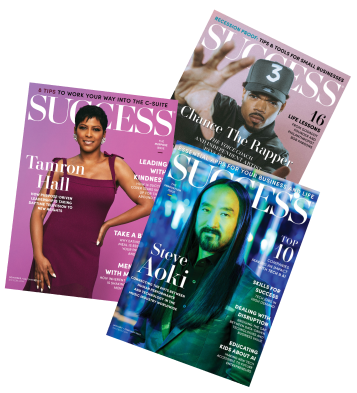As Cathy sits tethered to her desk on Tuesday, she daydreams about her free time for weekend and all of the leisure activity possibilities. She wants to go biking on the trail by her house, join a pickup soccer game at the local park and see that Matisse exhibit at the museum. She might even dive into that pile of books she has been wanting to read.
Like many of us, Cathy has a number of hobbies and interests that energize her days and make her happy. And yet, when her free Saturday actually does roll around, where does she end up? Conspicuously not on her bike or at the soccer field, and certainly not at that art exhibit everybody was raving about—it’s 20 minutes away! Her remote, on the other hand, is within easy reach, and Bravo happens to be airing a Top Chef marathon. Four hours later, Cathy has sunk deeper and deeper into the couch, unable to shake a listless sense of disappointment. She had better plans for the afternoon, and she wonders what happened to them.
Passive vs. active leisure activities during free time
What happened to Cathy was something that happens to many of us at one time or another. Inactivity is simply the easiest option. According to the 2021 “American Time Use Survey” by the U.S. Bureau of Labor Statistics, “watching TV” was the most common leisure activity for participants to engage in, “accounting for over half of all leisure time, on average.” Socializing—both in person and online via games—was the second most common. Unfortunately, although these types of “passive leisure,” like watching TV and trolling around on Facebook, might be easier and more convenient than biking, looking at art or playing soccer, they don’t offer the same rewards. According to a 2021 study published in the International Journal of Research in Education and Science, when comparing university students who engage in active and passive activities, those engaged in passive activities had lower perceived health outcomes and levels of happiness.
On the other hand, “active leisure” activities like hobbies, games and sports can enhance our health and happiness. Additionally, the same 2021 study found that the participants were aware of these benefits and sought to engage in physical activities in order to “protect their current health status or improve it.”
Physical activity comes in many forms, however, and these different forms may have different benefits. According to a 2019 study published in Applied Research in Quality of Life, the benefits of exercise for middle-aged adults differ based not only on type of exercise, but on gender as well. “Rambling in nature” for example only improved “emotional well-being and subjective health” in male participants. Endurance training, on the other hand, “was the only type of [leisure time physical activity] associated with subjective health in both genders.”
Why we tend to choose passive leisure during free time
Herein lies the paradox: If we know the benefits of physical activity—and indeed, according to the 2021 study, actively seek it out in order to better or maintain our physical health—why do we spend significantly more time engaged in passive leisure activities?
We choose the path of least resistance.
The answer seems to be that we are drawn—powerfully, magnetically—to those things that are easy, convenient and habitual. And it is incredibly difficult to overcome this inertia. Active leisure is more beneficial. But it usually requires more initial effort—getting the bike out of the garage, driving to the museum. Psychologist Mihaly Csikszentmihalyi, Ph.D., dubbed this “activation energy.” In physics, activation energy is the spark necessary to initiate a reaction. The same energy, both physical and mental, is needed to overcome inertia and kick-start a positive habit. Otherwise, human nature takes us down the path of least resistance time and time again.
It’s hard to be motivated when it feels like we wasted our free time.
However, we can often find it hard to engage in any leisure activity at all—including active leisure. A 2021 study published in the Journal of Experimental Social Psychology found that part of what determines the benefits we reap from leisure activities is whether we view them to be useful or not. According to the study, the perception of leisure as wasteful not only decreased enjoyment of the activity, but “[was] also associated with poorer mental health outcomes, including lower reported happiness, and greater reported depression, anxiety and stress.” To change your perceptions and reap the benefits of leisure activities isn’t simply a matter of belief, according to researchers. Instead, “connecting leisure with a long-term goal and framing it within productivity can help people enjoy free time better.”
Active leisure activities can feel stressful, not relaxing.
Participation can depend on other internal factors as well. According to a 2022 study published in the International Journal of Environmental Research and Public Health, adolescent engagement in leisure activities can depend on factors including stress, motivation and the environment. That is, adolescents who have a lot to do may feel stressed at the idea of setting aside leisure time. Thus, the activity is no longer relaxing. Additionally, “girls and adolescents who are unmotivated to participate and who experience negative peer influences during their participation in [structured leisure activities (SLA)] are less likely to participate frequently in SLA.” On the other hand, those who “perceive the context of participation as safe,” are motivated in some way to participate or have seen the benefits of SLA on their character or well-being have a greater chance of engaging in SLA.
Make a promise to yourself that you’ll engage in active leisure this upcoming weekend. You’ll be glad you did.
This article originally appeared in the September 2017 issue of SUCCESS magazine and has been updated. Photo by My Agency/Shutterstock



